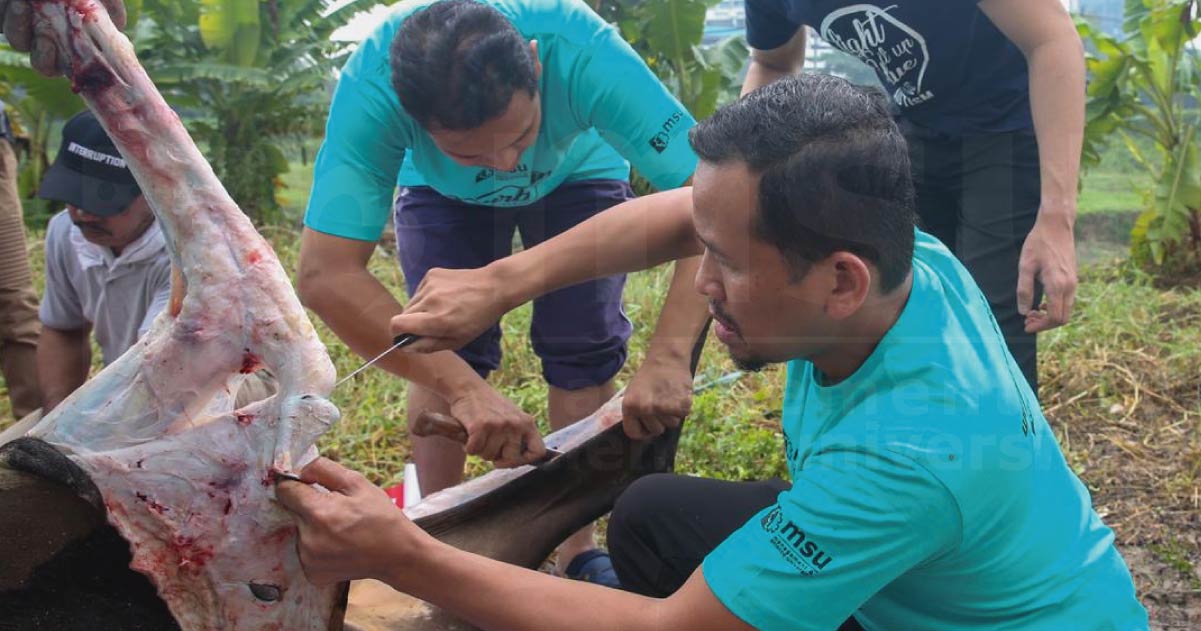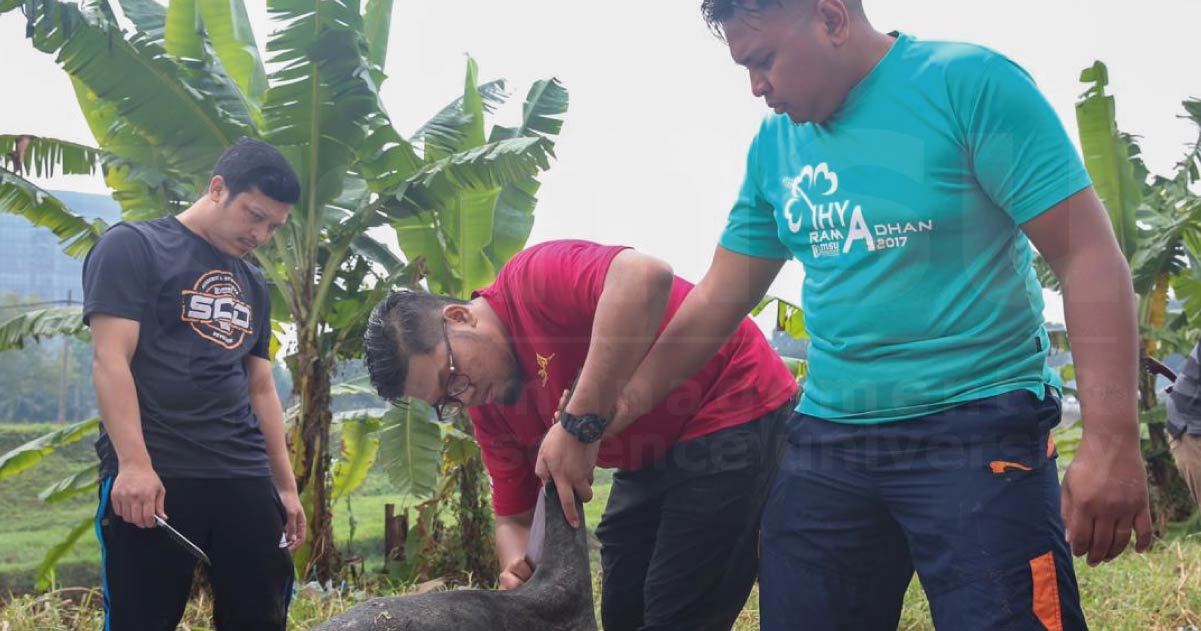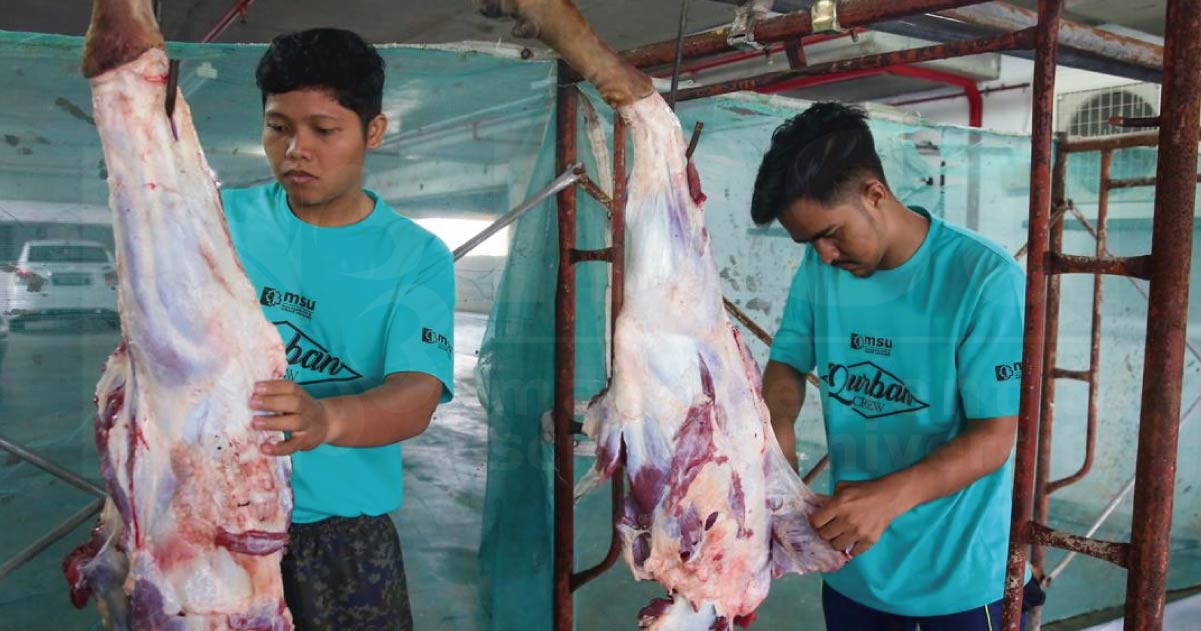

Health should be accessible to all, and boosting greater inclusivity are halal products.
According to the United Nations Food and Agriculture Organization (FAO), halal food is that which is permitted under Islamic Law through fulfillment of specific conditions. Halal food must not consist of, or contain, anything considered otherwise. It must neither be prepared, processed, transported, or stored by the use of any appliance or facility not free from non-halal elements, nor be in direct contact with any food not satisfying Halal requirements in the course of its preparation, processing, transport, or storage.

MSU Bachelor in Islamic Management (Hons)
MSU Bachelor in Islamic Banking (Hons)
MSU Bachelor in Islamic Finance (Hons)
MSU Bachelor in Takaful (Hons)
Halal food can never contain pork or pork products (that includes gelatin and shortenings), or any alcohol and its derivatives. Animals reared for their meat must be treated with kindness. Farm-raised animals, fish, and prawns must be fed vegetarian diets (some feed contains animal byproducts), and cannot be treated with antibiotics or growth hormones (since the hormones may contain pork-based ingredients).
Not only should the animals be treated humanely during its life but also during its slaughter; which is to be done manually, not by machine, and by a Muslim, who performs it with a blessing. The knife should be very sharp to minimize suffering, and other animals should not be allowed to witness the slaughtering. Once slaughtered, the blood must be let to drain off completely because it is not halal for consumption.

Falling out of line with the halal rules for slaughter is stunning with electric shock, which immobilizes by electrical current passing through the heart producing an immediate cardiac arrest. This leads to unconsciousness, and soon, death. The animal’s blood does not drain completely, owing to the heart’s pumping stopping upon stunning.
MSU Bachelor in Cardiovascular Technology (Hons)
Whilst the Muslim population is expected to increase seventy percent from 1.8 billion in 2015 to almost three billion in 2060 with the world population projected to grow thirty-two percent in the coming decades, there is also growing demand by non-Muslims in their considerations of Halal as healthy and hygienic. Attracting new or retaining old consumers and securing a foothold in the global market for Halal will require a thorough understanding of the Halal laws, the Halal certification process, and the use of trademarked logos by the food industry.
MSU Bachelor in Halal Quality Assurance (Hons)
Read about an MSU Bachelor in Nutrition (Hons) alumnus explaining the intricacies of Halal food preparation onboard the hospital ship USNS Mercy.
In nutrition, his own nourishment

MSU Bachelor in Food Service Technology (Hons)
MSU Master in Food Service Technology (by Research)
MSU PhD in Food Service Technology
Health should be accessible to all, and boosting greater inclusivity are halal products.
According to the United Nations Food and Agriculture Organization (FAO), halal food is that which is permitted under Islamic Law through fulfillment of specific conditions. Halal food must not consist of, or contain, anything considered otherwise. It must neither be prepared, processed, transported, or stored by the use of any appliance or facility not free from non-halal elements, nor be in direct contact with any food not satisfying Halal requirements in the course of its preparation, processing, transport, or storage.

MSU Bachelor in Islamic Management (Hons)
MSU Bachelor in Islamic Banking (Hons)
MSU Bachelor in Islamic Finance (Hons)
MSU Bachelor in Takaful (Hons)
Halal food can never contain pork or pork products (that includes gelatin and shortenings), or any alcohol and its derivatives. Animals reared for their meat must be treated with kindness. Farm-raised animals, fish, and prawns must be fed vegetarian diets (some feed contains animal byproducts), and cannot be treated with antibiotics or growth hormones (since the hormones may contain pork-based ingredients).
Not only should the animals be treated humanely during its life but also during its slaughter; which is to be done manually, not by machine, and by a Muslim, who performs it with a blessing. The knife should be very sharp to minimize suffering, and other animals should not be allowed to witness the slaughtering. Once slaughtered, the blood must be let to drain off completely because it is not halal for consumption.

Falling out of line with the halal rules for slaughter is stunning with electric shock, which immobilizes by electrical current passing through the heart producing an immediate cardiac arrest. This leads to unconsciousness, and soon, death. The animal’s blood does not drain completely, owing to the heart’s pumping stopping upon stunning.
MSU Bachelor in Cardiovascular Technology (Hons)
Whilst the Muslim population is expected to increase seventy percent from 1.8 billion in 2015 to almost three billion in 2060 with the world population projected to grow thirty-two percent in the coming decades, there is also growing demand by non-Muslims in their considerations of Halal as healthy and hygienic. Attracting new or retaining old consumers and securing a foothold in the global market for Halal will require a thorough understanding of the Halal laws, the Halal certification process, and the use of trademarked logos by the food industry.
MSU Bachelor in Halal Quality Assurance (Hons)
Read about an MSU Bachelor in Nutrition (Hons) alumnus explaining the intricacies of Halal food preparation onboard the hospital ship USNS Mercy.
In nutrition, his own nourishment

MSU Bachelor in Food Service Technology (Hons)
MSU Master in Food Service Technology (by Research)
MSU PhD in Food Service Technology